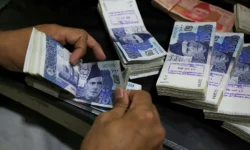Govt to make two DISCOs financially viable

20 June 2024
Published in: The Express Tribune
The government has decided to privatise the most efficient power distribution companies (DISCOs) while keeping two high loss-making entities with the state in an attempt to help them become financially healthy.
Moreover, a few less efficient DISCOs will be offered to investors under long-term concession agreements.
Earlier, the government had decided to invite the private sector to participate in running DISCOs while turning down the proposal for their outright privatisation.
Now, it has agreed that the most efficient DISCOs will be sold in the first two phases whereas a few companies will be handed over to the private sector under long-term concession agreements.
The Special Investment Facilitation Council (SIFC) has given his backing to the proposed plan.
Under the phase-I of privatisation, three DISCOs namely Islamabad Electric Supply Company (Iesco), Faisalabad Electric Supply Company (Fesco) and Gujranwala Electric Power Company (Gepco) will be sold to the interested investors.
The three electricity supplying companies are considered to be the most efficient and can draw a lot of interest from private-sector investors.
In the second phase of privatisation, Multan Electric Power Company (Mepco) and Lahore Electric Supply Company (Lesco) will be put on sale. These two DISCOs are also performing better and have the potential to attract the interest of investors.
Three other DISCOs, which are located in Khyber-Pakhtunkhwa and Sindh, are suffering losses. In their cases, the government has planned to offer them to investors under long-term concession agreements.
This means that the operation of these distribution firms will be outsourced to the private sector for improvement in the recovery of electricity bills.
The three companies include Hyderabad Electric Supply Company (Hesco), Peshawar Electric Supply Company (Pesco) and Sukkur Electric Power Company (Sepco). Their losses are estimated at more than 35%.
In Pakistan, a uniform electricity tariff system is in place, as part of which consumers of efficient DISCOs pay for the heavy losses of other DISCOs.
Under the third plan, the government will not offer two DISCOs to investors either for privatistaion or long-term concession deals. These distribution firms also incur heavy losses, which have gone beyond the control of the state.
The government has decided to keep the two loss-making entities, which include Quetta Electric Supply Company (Qesco) and Tribal Areas Electric Supply Company (Tesco), with the state to turn them financially viable by crafting a development plan.
Qesco operates in Balochistan areas whereas Tesco functions in tribal areas. According to the development plan, the government will make efforts to bring financial improvement in the two companies.
In this regard, the Power Division will ensure that technical consultants are hired by the end of June 2024.
The government had earlier asked provinces to take over control of power distribution firms but they seemed not interested as the provinces were required to bear the cost of subsidy provided on electricity supply.
After the refusal of provinces, the centre decided to outsource the operation of DISCOs – a plan finalised by the recent caretaker administration. However, the current PML-N led government contended that the plan to involve the private sector had been drawn up without conducting the necessary due diligence in the market.
Now, the government has prepared a three-tiered plan. First, the most efficient power distribution firms will be privatised. Then in the second segment, the less efficient DISCOs will be outsourced to the private sector. And in the third phase, the high loss-making entities will be retained by the federal government with the aim of making them financially healthy.
In the power sector, the circular debt has taken the shape of a chronic disease that has afflicted the entire energy chain.
While acknowledging the circular debt as a key challenge in the power sector, the government has formulated a debt reduction plan, where around Rs1.26 trillion of debt will be settled, according to officials of the Power Division.
Similarly, a tariff rationalisation plan has been sent to the Prime Minister’s Office about a couple of months ago. In this case, the Finance Division is seeking the concurrence of all stakeholders.





